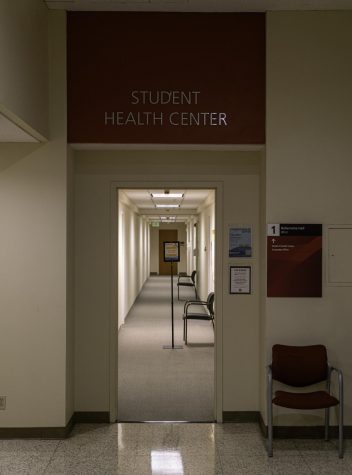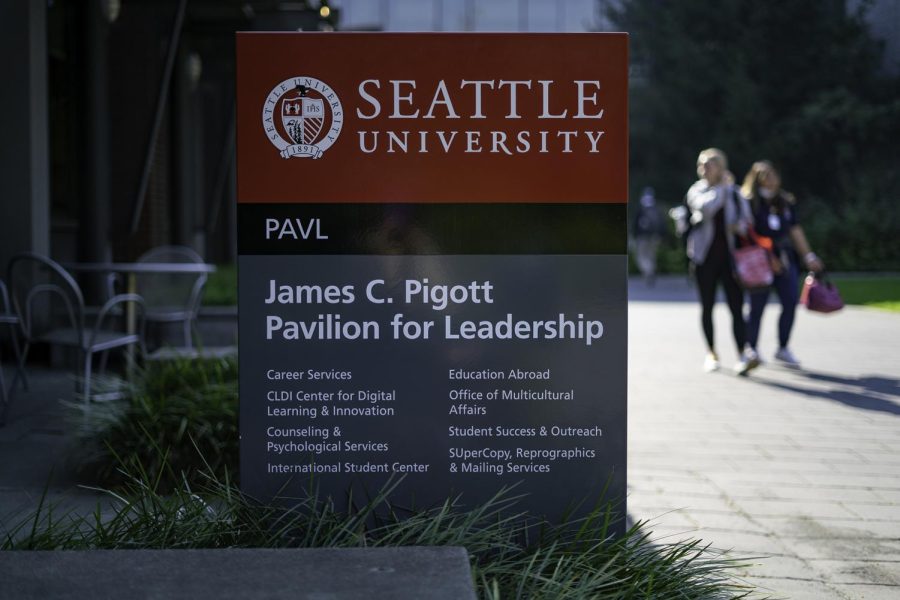Your One Stop Resource Shop: What Does Seattle University Have to Offer?
New school years can be a chaotic and confusing time that, in some cases, leave students with gaps in their support systems. Managing personal, spiritual, academic and professional demands is a challenge that often requires one to reach out for help—and Seattle University offers some resources to assist.
Director of the Wellness and Health Promotion Center at Seattle U Chris Fiorello reflected upon the transitional period between high school and young adulthood.
“Folks are moving from high school where their lives were structured. Most of their care needs, sometimes were taken care of on their own, sometimes were taken care of by family members— so when you go to college where you’re separated from major support structures in terms of friendships and family,” Fiorello said.
When someone is undergoing a period of change, self-care becomes important to coping with the new environment and new situations, but it can also be a source of discomfort. Self-care is an under taught skill, but is imperative in maintaining personal balance and health.
“Learning to take care of ourselves is a skill that we have to develop and hone over the years,” Fiorello articulated.
When asked about misconceptions students have regarding Seattle U’s health and wellness program, Fiorello discussed the lack of value academic spaces place in self-care and false ideals surrounding what necessitates focusing on self welfare.
“A misconception that I think folks have is that dedicating the time to a well-being program will somehow take away from other things, but in the long run it’s developing a skill set to enhance your overall well-being. The reality is, everybody needs this. I 100 percent stand by that,” Fiorello said.

The Wellness and Health Promotion Center, located on the third floor of the Student Center, has resources that support physical wellness, mental health, healthy relationship practices and alcohol and drug safety. Their new tuition-funded online health program, TimelyCare, provides access to telehealth appointments and crisis lines as well as scheduled counseling and psychiatric care. In addition, they offer online and in-person resources, workshops and confidential support to help guide students.
“Please feel free to just come in and hangout at our office. Any student can do it. We have coffee, we have tea…folks can just study here. We love it. We are really honest and transparent with our own wellness journeys, and are happy to talk about it,” Fiorello said.
Raymond Carr echoes Fiorello’s sentiment of openness and inclusion within the context of Campus Ministry. A second-year pre-major studies student and Campus Student Minister, Carr believes that exploring one’s spirituality or faith is an essential part of self-growth.
“As a Catholic school, people have different questions on spirituality, while here spirituality is engrained in a lot of aspects at Seattle U without being explicitly Catholic or religious, and Campus Ministry is a resource for students of any religious, non-religious or spiritual identities to find community and explore faith and reflection,” Carr said.
Campus Ministry, located on the first floor of the Student Center, combines social justice and spiritual meditation through retreats, interfaith programming, community service, one-on-one conversations with a trained minister or spiritual director and workshops.
“A lot of people get to college and actually have the freedom to choose what they want to do if they were raised religiously and don’t know if they want to continue doing that or not. Or maybe they never were but keep hearing these things about religion around them or are growing in other spiritual and reflective ways and campus ministry provides a safe space to explore that growth,” Carr said.
Campus Ministry is open for everyone. Whether students are nonreligious or practicing, there is a space for them within campus ministry. Carr urges his peers to stop by the Campus Ministry Office whenever they feel comfortable to do so—no questions asked.
The Office of Multicultural Affairs (OMA) is a safe space for everyone, paying particular attention to support and uplift BIPOC, LGBTQ+ and underprivileged students. Some of their programs include BIPOC and queer student affinity groups, food insecurity programs, leadership programs, end of the year celebrations and specific programmatic events. Anton Ward-Zanotto, assistant dean of students, director of integrity formation and interim director of OMA, shared the importance of OMA programming on campus.
“With all of these programs, we are working to enhance the student experience, ensure the retention of our students, and respond to specific needs of our BIPOC and LGBTQ+ students,” Ward-Zanotto said.
Ward-Zanotto encouraged people to stop by OMA to best utilize their resources.
“We love folks to connect with our spaces! We encourage students to come by when we’re open, and use our lounges on the third floor of the Student Center (322 and 390).”
Seattle U is home to more than 800 international students from over 60 different countries. The English Language Learning Center (ELLC) not only serves these students, but numerous multilingual students as well. Aleksandra Petrovich, director and associate clinical professor of the English Language Learning Center shared more about who the ELLC caters toward.
“I think when people hear English Language Learning Center they think almost exclusively of international students, but actually, when I started about three years ago, I realized there were a lot of people that we should be serving. Our students are multilingual speakers for whom English is not their first or primary language. I see this center as serving all these students,” Petrovich said.
The ELLC is not only for honing one’s English skills—it also hopes to create a foundational understanding of American culture and Seattle U’s academic culture.
“We teach students how to be successful in an American classroom, and give them tools on how to do this. Because everybody knows participation is important in an American classroom, but they don’t always know how to do it,” Petrovich said.
Petrovich encourages students to stop by Suite 120 of the Hunthausen Building with any questions or to contact the ELLC via email.
As a university student, student life is often framed within the confines of an on-campus existence. However, it is valuable to find experiences off campus as well. Erin Kwan, director of fellowships at Seattle U, spoke about opening opportunities to students they may have never otherwise considered.
“A lot of the programs that I work with are wonderful opportunities to give students chances to do things that would otherwise not necessarily be available to [them] such as studying abroad, doing independent resource projects, [and] becoming part of a cohort that would help you make networking connections and help further careers,” Kwan said.
The Office of Fellowships is open to all students on and off campus, meaning that Seattle U alumni can utilize the office.
“No matter how broad or narrow your focus is, you can come meet with me and I will ask for a little intake form and look at what you’ve got, and I can pull different opportunities that might be interesting to you. We will work together to see where they want to go from there,” Kwan said.
Fellowships may seem overwhelming, as there is often a long and competitive process to winning one. Kwan noted that even if someone does not win a fellowship, the application process is still beneficial, as it can help identify interests and enhance writing skills. It also exposes the applicant to opportunities or qualifications that make a great resume. Kwan invites students to send them an email even if they’re not sure where to start, and they will help guide them along the process.
All of Seattle U’s programs provide a variety of services—offered by directors and staff who are employed to consider a specific component of student welfare. While there are still gaps in service coverage which pose barriers to students, those in need of assistance have resources to contact on campus. The only thing left to do is reach out.


